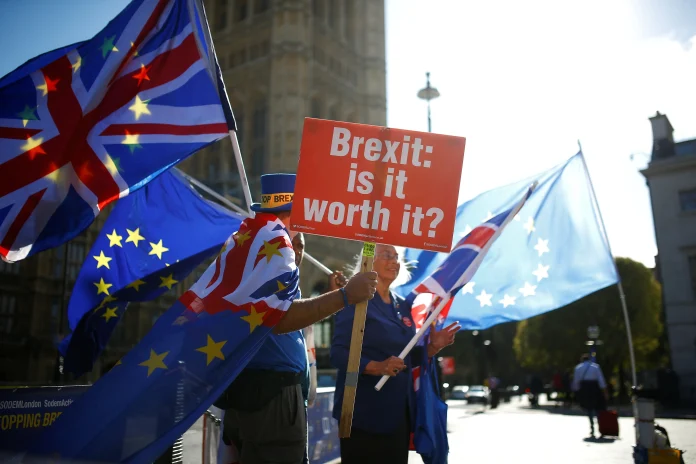The relationship between the UK and the European Union has long been described in negative terms as an “awkward partnership” of ever “reluctant Europeans,” and eventually led to Brexit, according to UK in a Changing Europe.
However, the lack of a popular European identity coupled with deepening Europeanisation can hardly be considered an explanation for Brexit. In James Dennison’s recent working paper for UK in a Changing Europe, he attempted to explain why Britons in the late 1980s and early 1990s were so pro-European.
Dennison describes this phenomenon using a term used by the media in the UK, Europe and beyond to describe the mood of the time – Europhoria.
The Europhoria study provided a wealth of evidence that reminded how basic assumptions about even recent history are distorted by modernity, the author noted. Margaret Thatcher’s “Europe, the Future” 1984 paper called for a new Europe, dynamic through a single internal market, empowered through common defence, foreign, environmental, research and development policies.
The resulting Single Market Act succumbed to the sentiment for a single market in Europe, quickly supplemented by social rights and President Jacques Delors. Thatcher then called for a conference of British businessmen in 1988:
Just think for a moment what a prospect that is. A single market without barriers (…) Bigger than Japan. Bigger than the United States. On your doorstep (…) And it’s only five years away.
Media articles regularly called for Britain’s full participation in “the superpower of the next century.” The author notes that Boris Johnson’s pro-European columns in the Daily Telegraph’s “Countdown to 1992” series labelled Eurosceptics as “grouches”, “super-nationalists” and “people with a prejudice against anything that sounds vaguely foreign”.
The Guardian, reflecting on the 1975 referendum, wrote that “British withdrawal from the EC is a mere fantasy now.” Similar sentiments were reinforced across Europe when the fall of the Berlin Wall and the prospect of enlargement, combined with what was regularly referred to simply as “1992”, sparked a wave of anticipation and enthusiasm.
Whilst support for membership of the then European Community (EC) was already very high in most other countries, British sentiment in the late 1980s was on a much faster positive trajectory. Of particular note was the British popular enthusiasm expressed for Europeanisation in the areas of labour rights, financial integration, the armed forces and the environment, Dennison noted.
In the late 1980s, the British showed relative restraint only with regard to monetary integration and the transfer of powers to the European Parliament from the House of Commons. But such enthusiasm went far beyond institutional politics, as adverts for new pan-European financial indices promised returns of “1000% in the 1990s!”
In a short time under John Major’s leadership, the UK achieved its most harmonious, central role in Europe, quickly joining the Exchange Rate Mechanism (ERM), the Euro’s precursor, as support for Europe peaked in the early 1990s.
The adoption of the Maastricht Treaty reinforced Euroscepticism throughout the new EU. Unlike other countries, however, the UK did not experience in the early twenty-first century the rise in pro-European sentiment seen elsewhere, which was unfortunately aided by the single currency.
Although Europhoria is now long forgotten, much of its legacy survives, both in terms of institutional architecture and in terms of the popular understanding of Europe as Britain’s dominant international community.
The legacy has resurfaced again since the outbreak of war in Ukraine in February 2022. Moreover, it reminds us of the limitations of over-deterministic understandings of “Europe”, both in terms of national support in the UK and elsewhere, and in terms of what “Europe” should and could be, Dennison noted.
